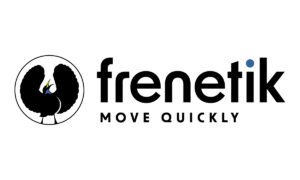Maryland’s tech sector is becoming increasingly involved in tackling pressing social issues, such as homelessness and the shortage of affordable housing. These challenges require innovative solutions and strong collaborations between the private sector, government, and nonprofits. Maryland’s tech industry, known for its proximity to federal agencies and research institutions, is using its expertise and resources to address these critical issues.
The Growing Problem of Homelessness and Affordable Housing in Maryland
Homelessness and lack of affordable housing are intertwined issues that many Marylanders face. According to recent reports, over 6,000 people in Maryland experience homelessness on any given night. The root causes are complex, including economic hardships, insufficient affordable housing, mental health issues, and more. Additionally, as housing prices rise, more families are struggling to afford stable housing. Addressing these issues requires both immediate relief and long-term strategic interventions.
Tech companies and startups in Maryland are uniquely positioned to assist due to their skills, innovative capacities, and financial resources. With a variety of approaches, Maryland’s tech sector is stepping up to offer solutions that address both the immediate needs and the underlying causes of homelessness and the affordable housing crisis.
Tech-Supported Affordable Housing Initiatives
Affordable housing is a significant challenge across the United States, and Maryland is no exception. With rising rents and increasing property values, many residents find it difficult to secure affordable homes. Several Maryland-based tech companies are now actively engaged in creating and supporting affordable housing initiatives. By leveraging technology and data, these companies are developing tools to help streamline the process of finding and maintaining affordable housing.
Leveraging Data for Housing Solutions
One of the most promising contributions by tech firms is in data analysis. By gathering data on income levels, housing prices, and vacancy rates, these companies provide valuable insights that help policymakers and nonprofits make informed decisions. Companies are also using predictive analytics to identify at-risk neighborhoods, where residents may be at a higher risk of losing their homes. This allows organizations to focus their efforts where they are needed the most.
For example, some Maryland tech startups are working with local governments to create real-time dashboards that show the availability of affordable housing units. These dashboards allow people to find affordable housing options based on their income level, family size, and other factors. By makig this information more accessible, tech companies are helping Maryland residents locate suitable housing faster, reducing the time and stress associated with the search for affordable homes.
Digital Platforms to Simplify Housing Applications
Another area where Maryland’s tech companies are making a difference is in the creation of digital platforms that streamline housing applications. For many people facing homelessness or housing instability, the process of applying for affordable housing can be confusing and time-consuming. Some tech companies are developing apps and online platforms that guide applicants through each step, ensuring that they understand what is required and reducing the chances of incomplete applications.
These platforms often include features like automated notifications, document storage, and verification systems that help applicants keep track of their progress. This ease of access is essential for vulnerable populations, who may not have the time or resources to navigate complex application processes. By simplifying the application process, Maryland’s tech companies are helping more people secure stable housing faster.
Tech-Driven Solutions for Homelessness Relief
In addition to affordable housing, Maryland’s tech sector is also involved in initiatives aimed directly at alleviating homelessness. Many tech companies are partnering with nonprofits and local governments to provide resources that address the immediate needs of the homeless population. From mobile health clinics to job training platforms, technology is playing a significant role in improving the lives of those experiencing homelessness.
Mobile Clinics and Health Solutions
Healthcare access is a critical need for people experiencing homelessness, as they often lack regular access to medical services. Maryland tech companies are working with healthcare providers to bring mobile health services to homeless populations. These mobile clinics offer essential services, such as check-ups, vaccinations, and mental health counseling, all within reach of people who may otherwise go without care.
By equipping these mobile units with digital health records, tech companies ensure that medical professionals can easily access patients’ health information, leading to more efficient and coordinated care. These clinics not only provide immediate health assistance but also connect people to additional resources, such as housing programs or substance abuse counseling. This holistic approach addresses both the physical and mental health needs of homeless individuals, helping them achieve greater stability.
Employment and Skill Development Programs
Finding stable employment is a crucial step for individuals trying to escape homelessness. However, without access to job training or skill development resources, many find it challenging to secure steady work. Maryland’s tech companies are stepping in by developing online platforms and apps that offer free or low-cost training programs tailored to in-demand skills. These platforms provide courses in fields such as coding, customer service, and basic office software—skills that are highly sought after by employers.
Moreover, some tech companies have created programs specifically aimed at helping formerly homeless individuals re-enter the workforce. By offering mentorship opportunities, career counseling, and job placement services, these companies are empowering individuals to gain financial independence. Employment is a crucial factor in maintaining housing stability, and these programs are making a meaningful difference in the lives of those transitioning out of homelessness.
Innovative Tech Partnerships with Nonprofits and Government Agencies
Collaboration is essential in addressing complex social issues like homelessness and affordable housing. Maryland’s tech sector is forging partnerships with nonprofits and government agencies to pool resources, share data, and develop comprehensive solutions. These partnerships enable a coordinated approach, ensuring that efforts to combat homelessness are both effective and sustainable.
The Role of Blockchain in Housing Programs
Blockchain technology is emerging as a tool with significant potential for improving housing assistance programs. Maryland-based tech firms are exploring how blockchain can enhance transparency and efficiency in the distribution of housing benefits. For example, blockchain-based systems could help track the allocation of funds, ensuring that resources reach those who need them most.
Blockchain can also streamline the application and verification process for housing programs, making it easier for people to prove eligibility and receive assistance. In a sector where delays and mismanagement of funds are common issues, blockchain offers a transparent solution that reduces bureaucratic hurdles and improves accountability.
Smart Housing Solutions and IoT Technology
The Internet of Things (IoT) is another technology that Maryland’s tech sector is leveraging to tackle affordable housing challenges. IoT-enabled devices can help monitor building conditions in real-time, identifying maintenance needs before they become costly problems. This preventive approach not only reduces expenses for property owners but also ensures that housing units remain safe and livable for tenants.
Furthermore, IoT devices can help lower energy costs in affordable housing units by monitoring and optimizing energy usage. Smart thermostats, lighting systems, and other energy-efficient technologies contribute to lowering the overall cost of living, making housing more affordable for low-income residents. By integrating IoT technology into affordable housing, Maryland’s tech companies are promoting sustainable living and reducing the environmental impact of housing projects.
The Future of Tech-Driven Solutions for Housing and Homelessness
As Maryland’s tech sector continues to grow, so does its potential to address critical social issues. The use of data analytics, mobile health solutions, employment platforms, blockchain, and IoT technology represents a powerful toolkit for tackling homelessness and affordable housing challenges. However, these innovations require ongoing support from both the government and the public to reach their full potential.
The future of tech-driven solutions for homelessness and affordable housing in Maryland depends on continued collaboration. By fostering partnerships with government agencies, nonprofits, and communities, Maryland’s tech sector can ensure that its efforts create lasting change. Addressing homelessness and affordable housing is a complex challenge, but with innovative solutions and a commitment to collaboration, Maryland is making significant strides.
Conclusion
Maryland’s tech sector is proving to be a vital ally in the fight against homelessness and the quest for affordable housing. Through data analysis, digital platforms, healthcare initiatives, and employment programs, tech companies are addressing both immediate needs and long-term solutions. As technology continues to transform, Maryland’s tech industry will play an increasingly essential role in creating sustainable solutions for some of society’s most pressing issues. By embracing innovation and fostering partnerships, Maryland’s tech sector is leading the way towards a future where everyone has access to safe, affordable housing.



































